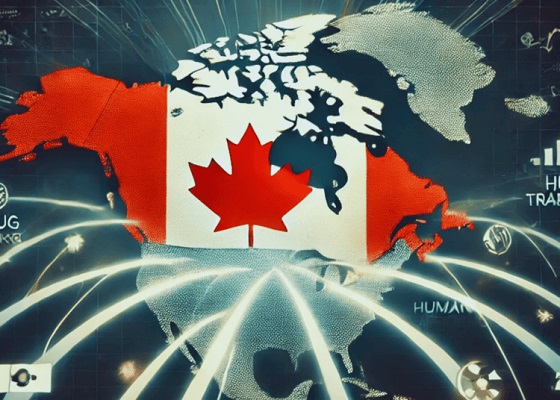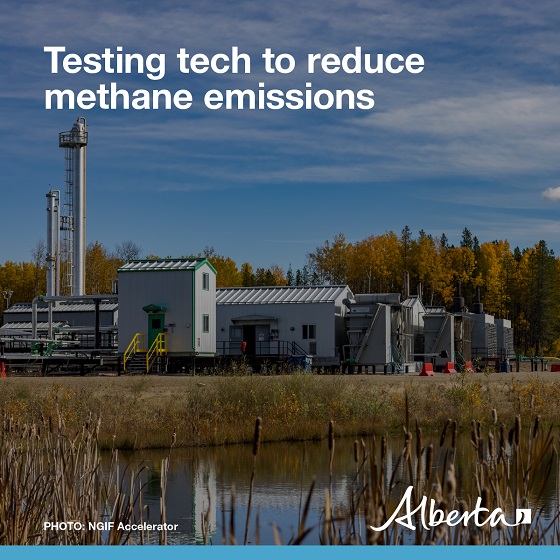Alberta
Alberta’s financial update one for the ages – Historical investments in savings and debt reduction on the way

Q1 update: Paying down debt and saving for the future
Strong economic activity this year will see Alberta make historic investments in savings and debt reduction.
High revenue forecast for bitumen royalties, other resource revenue and corporate income taxes have increased the province’s forecast surplus to $13.2 billion for 2022-23.
This year’s surplus enables the government to make the largest single-year debt repayment in Alberta’s history, repaying $13.4 billion in debt that comes due this fiscal year. The government will also allocate $5.2 billion to debt coming due in 2023-24.
The government will make the largest ever single-year investment in the Heritage Fund, retaining the fund’s remaining 2021-22 net investment income of $1.2 billion and allocating $1.7 billion, for a total investment of $2.9 billion. This is over and above the $705 million retained for inflation-proofing last year.
“Alberta’s commitment to fiscal discipline and our unrelenting focus on economic growth has helped bring about an extraordinary turnaround in our financial situation. We promised Albertans we would get our fiscal house in order and that’s exactly what we’ve done. Now, we’re paying down debt so future generations won’t have to, saving more for a rainy day, and putting more money in Albertans’ pockets.”
“For too long, governments in Alberta refused to exercise fiscal discipline during boom times. Those days are over. Alberta’s government is making the prudent decision to save and invest surplus revenues so future generations can benefit from the prosperity of today.”
Indexing personal income taxes
The province is fulfilling a commitment made in 2019 to index personal income taxes to inflation, retroactive to the 2022 tax year. The basic personal tax amount is rising to $19,814 and will rise again in 2023.
An additional 80,000 to 95,000 Albertans will pay no provincial personal income tax by 2023, on top of the approximately 1.3 million tax filers who already pay no provincial personal income tax.
Many Albertans will first see the benefit of indexation through lower tax withholdings on their first paycheques of 2023. In addition, since indexation will resume for 2022, Albertans will receive larger refunds or owe less tax when they file their 2022 tax returns in spring 2023. In total, resuming indexation for 2022 and subsequent years will save Albertans an estimated $304 million in 2022-23, $680 million in 2023-24 and $980 million in 2024-25.
Indexing personal income taxes to inflation will contribute further to Alberta’s strong tax advantage: Albertans already pay less in overall taxes, with no PST, no payroll tax and no health premiums.
Alberta’s government has already introduced some of the most generous measures to keep more money in the pockets of Albertans, committing $2.4 billion in relief for rising prices, inflation and cost of living, including:
- Providing $300 in relief for 1.9 million homeowners, business operators and farmers over six months through the Electricity Rebate Program.
- Eliminating the 13-cent-per-litre provincial fuel tax until at least the end of September.
- Helping school authorities cover high fuel costs for buses under the Fuel Price Contingency Program.
- Providing natural gas rebates from October 2022 to March 2023 to shield consumers from natural gas price spikes.
- Maintaining Alberta senior benefits for those over 75 years of age, exempting them from the Federal Old Age Security increase.
Other economic growth indicators
Momentum has picked up in Alberta’s labour market. The province has added 68,200 jobs since the beginning of the year and most industries have surpassed employment levels from early 2020, before the pandemic first took hold of the province. Alberta’s unemployment rate fell to 4.8 per cent, the lowest since early 2015. In response to these positive developments, the province has revised its forecast for employment growth to 5.3 per cent, up from 4.1 per cent at budget. The unemployment rate has also been revised down to 5.9 per cent in 2022 from the budget forecast of 6.6 per cent.
Business output has surged in the province on the back of higher demand and prices. While energy products have led the increase, there have been gains across most industries including chemical and forestry products, food manufacturing and machinery. Merchandise exports have risen more than 60 per cent so far this year, while manufacturing shipments are up over 30 per cent.
Higher energy prices are boosting revenues and spending in the oil and gas sector. Strong drilling activity has lifted crude oil production to 3.6 million barrels per day so far this year and is expected to reach a record high this year. Outside the oil and gas sector, companies are proceeding with investment plans, buoyed by solid corporate profits.
Real gross domestic product (GDP) is expected to grow by 4.9 per cent in 2022. This is down slightly from the budget forecast of 5.4 per cent, reflecting softer expectations for growth in consumer spending and residential investment as a result of higher inflation and interest rates. Even so, real GDP is expected to fully recover from the COVID-19 downturn and surpass the 2014 peak for the first time this year. Private sector forecasters are expecting Alberta to have among the highest economic growth in the country this year and in 2023.
Quick facts
- The surplus for 2022-23 is forecast at $13.2 billion, $12.6 billion more than what was estimated in Budget 2022.
- The revenue forecast for 2022-23 is $75.9 billion, $13.3 billion higher than reported in the budget.
- Non-renewable resource revenue is forecast at $28.4 billion in 2022-23, up $14.6 billion from budget’s $13.8 billion forecast.
- Corporate income taxes are up $2 billion from the budget, with a new forecast of $6.1 billion for 2022-23.
- Revenue from personal income taxes is forecast to be $13.3 billion in 2022-23, down $116 million from budget. Indexation of the personal income tax system, retroactive to Jan. 1, 2022, is forecast to lower revenue by $304 million. This is partially offset by increased revenue from rising primary household income.
- Total expense is forecast at $62.7 billion, up slightly from the $62.1 billion estimated at budget.
- Education is receiving an extra $52 million to support the new teachers agreement and to help school authorities pay for bus fuel.
- $279 million the province received from the federal government for the Site Rehabilitation Program is being spent this year instead of next year.
- $277 million is needed to cover the cost of selling oil due to higher prices and volumes.
- The Capital Plan in 2022-23 has increased by $389 million mainly due to carry-over of unspent funds from last fiscal year and an increase of $78 million for highway expansion.
- Taxpayer-supported debt is forecast at $79.8 billion on March 31, 2023, which is $10.4 billion lower than estimated in the budget.
- The net debt-to-GDP ratio is estimated at 10.3 per cent for the end of the fiscal year.
Alberta
Working to avoid future US tariffs, Alberta signs onto U.S. energy pact

Louisiana Governor Jeff Landry and New Hampshire Governor Chris Sununu of the Governors’ Coalition for Energy Security
Premier Danielle Smith has joined the Governors’ Coalition for Energy Security to further support advocacy of Alberta’s energy and environmental interests with key U.S. states.
The coalition was established in September 2024 by U.S. State governors Jeff Landry (Louisiana) and Chris Sununu (New Hampshire) with the aim of ensuring energy security, lower energy costs, increased reliability, sustainable economic development and sensible management of energy resources and the environment. With 12 U.S. states already signatories to the coalition, Alberta is the first non-U.S. state to enter into this agreement.
By expanding energy ties with the U.S. and promoting cross-border energy trade and participation, Alberta is helping to build upon its North American Energy strategy. Alberta already accounts for 56 per cent of all oil imports to the U.S. – twice as much as Mexico, Saudi Arabia and Iraq combined – which is helping to drive job creation and prosperity on both sides of the border. Natural gas also plays an important role in North America’s energy mix. Alberta is the largest producer of natural gas in Canada and remains positioned to support the U.S. in filling their domestic supply gaps.
“I am honoured to join the Governors’ Coalition for Energy Security and would like to extend my sincere thanks to governors Landry and Sununu for the invitation. Alberta plays a vital role in North American energy security, serving as the largest supplier of crude oil and natural gas to the United States. With 200 billion barrels of recoverable oil, 200 trillion cubic feet of recoverable natural gas, significant natural gas liquids and ample pore space for carbon capture, Alberta’s contribution is set to grow even further as we look to work with the Trump Administration and other U.S. partners to increase our pipeline capacity to our greatest friend and ally, the United States. We are proud to collaborate with this coalition of allied states in advancing energy security, reliability and affordability for Americans and Canadians.”
“Our mission as an organization has not changed but Alberta’s welcome arrival to our group sparked a conversation about what our core mission is, and that is ensuring energy security in all its forms. Our members all share the common goal of enhancing and protecting energy options for our people and businesses, which leads to lower energy costs, increased reliability, sustainable economic development and wise management of energy resources and the environment. I welcome Premier Smith and the insights she will bring as the leader from a fellow energy-producing province, that like my state, is under a federal system of government where national imperatives are not always aligned with state or provincial interests.”
Alberta is a global leader in emissions reduction technology and clean energy solutions. The province has captured about 14 million tonnes of carbon dioxide through carbon capture, utilization and storage technology, and has the ability to support the U.S. in developing new infrastructure and supply chains for future energy markets in the areas of hydrogen, renewables, small modular reactors and others.
Alberta is also unlocking its untapped geological potential to help meet the increasing demand for minerals – many of which are used worldwide to manufacture batteries, cell phones, energy storage cells and other products. This includes the province’s lithium sector where Alberta’s government is supporting several innovative projects to develop new ways to extract and concentrate lithium faster and with higher recovery rates that are less capital and energy intensive and have a smaller land-use footprint.
As part of this coalition, Alberta looks forward to sharing best practices with states that already have expertise in these areas.
Quick facts
- The U.S. is Alberta’s largest trading partner, with C$188 billion in bilateral trade in 2023.
- In 2023, energy products accounted for approximately C$133.6 billion, or more than 80 per cent of Alberta’s exports to the U.S.
- The Governors’ Coalition for Energy Security’s 12 signatory states include Louisiana, New Hampshire, Indiana (Governor Eric Holcomb), Alabama (Governor Kay Ivey), Georgia (Governor Brian Kemp), Tennessee (Governor Bill Lee), South Dakota (Governor Kristi Noem), Mississippi (Governor Tate Reeves), Arkansas (Governor Sarah Huckabee Sanders), Oklahoma (Governor Kevin Stitt), Wyoming (Governor Mark Gordon) and Virginia (Governor Glenn Youngkin).
Alberta
New red tape reporting website will help ramp up housing construction in Alberta

Helping builders by putting an end to housing delays
Alberta’s new Stop Housing Delays online portal will allow developers, municipalities and other housing partners to report red tape and unnecessary home-building delays.
Alberta’s government is focused on ensuring Albertans have access to the housing they need, and that means working to streamline processes, cut red tape and reduce delays that are slowing housing construction down. As part of this work, government has launched a new online portal to help in these efforts.
The Stop Housing Delays online portal is now available for developers and municipal authorities to help identify areas that are preventing fast and efficient residential construction. This portal will help government identify and address barriers to building homes across the province.
“The Stop Housing Delays portal will allow Alberta’s government to hear directly from developers, municipalities and other partners on where delays are happening in the construction process. This will help identify and remove barriers, ultimately getting homes built faster and continuing Alberta’s record home-building pace.”
“Alberta’s government will continue to work with municipalities and find solutions to speed up the home-building process. The Stop Housing Delays portal will give us another tool to inform those discussions and identify areas where we can improve the pace of home building.”
Once developers, municipalities or industry partners have submitted their issue using the online form, government will collect and assess the information provided. Alberta’s government will be taking a collaborative, cross-ministry approach to ensure the appropriate departments are working together to find solutions where possible. Solutions may range from minor changes to policy reform.
Alberta’s government continues to support builders and encourage new residential housing construction by reducing red tape, incentivizing housing construction and supporting innovative strategies to build homes faster than ever.
“This webpage is an excellent opportunity to gather knowledge and further eliminate red tape. Government has been persistent in our approach of cutting red tape and removing roadblocks, and this will help to speed up residential construction. I look forward to hearing from developers and our other partners on how we can help get projects moving and Albertans in homes.”
Alberta continues to see strong housing starts and increases while other provinces across Canada are seeing a reduction in housing starts. The first half of 2024 saw 9,903 apartment unit starts in the province. This marks the highest amount in any half year in Alberta’s history, breaking the previous record of 9,750 set in 1977. Albertans will benefit from 33,577 new housing starts from January through September 2024, up 35 per cent from the same period last year. Alberta’s government remains focused on working with industry and non-profit partners to ensure that the province’s growing population has access to the housing it needs.
“This portal is a valuable tool for industry to highlight gaps, barriers and delays that may need to be prioritized and addressed by either local or provincial governments. Real solutions can only emerge through transparency, open communication and collaboration. This is an important step toward identifying the unique challenges each region and municipality faces in delivering attainable housing.”
Quick Facts
- Housing starts for January – September 2024 compared with January – September 2023
- Provincewide: 33,577 compared with 24,904 (up 35 per cent)
- Edmonton: 13,359 compared with 9,099 (up 47 per cent)
- Calgary: 17,414 compared with 14,141 (up 23 per cent)
- Lethbridge: 599 compared with 148 (up 305 per cent)
- Red Deer: 314 compared with 146 (up 115 per cent)
- Data shows Alberta had 10,699 purpose-built rentals, making up 32 per cent of all housing starts.
- Since 2019, Alberta’s government has invested almost $850 million to build more than 5,100 units and close to 900 shelter spaces. This includes projects we have committed to, that are in progress and that are complete.
- Together with its partners, Alberta’s government is supporting $9 billion in investments into affordable housing to support 25,000 additional low-income households by 2031.
Related information
-

 Digital Currency2 days ago
Digital Currency2 days agoConservatives urge Canadians to reject mandatory digital IDs proposed by Liberal gov’t
-
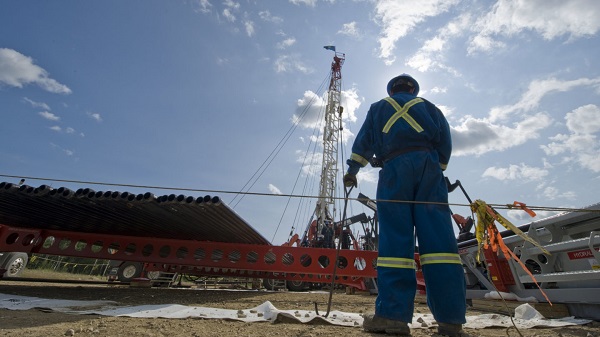
 Canadian Energy Centre1 day ago
Canadian Energy Centre1 day agoIgnoring the global picture and making Canadians poorer: Energy and economic leaders on Ottawa’s oil and gas emissions cap
-

 Energy2 days ago
Energy2 days agoFederal government’s ’carbon-free’ electricity target far-fetched
-
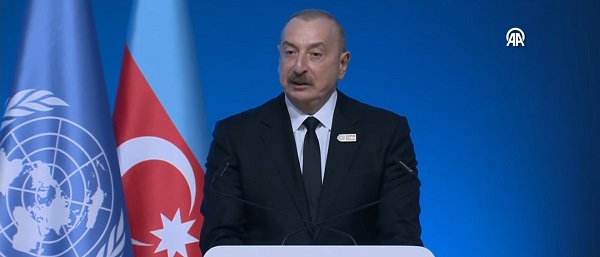
 Daily Caller2 days ago
Daily Caller2 days agoPresident Of Country Hosting UN Climate Summit Defends Fossil Fuels, Slams Media And Green ‘Hypocrisy’
-

 Alberta1 day ago
Alberta1 day agoNew red tape reporting website will help ramp up housing construction in Alberta
-
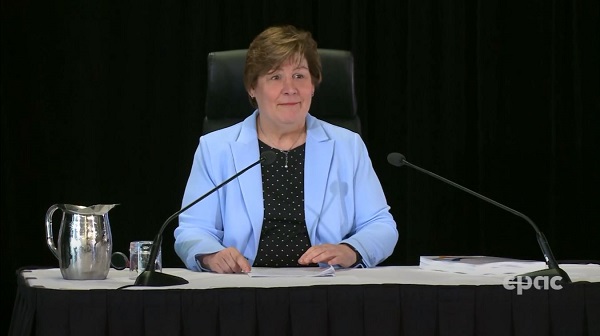
 espionage1 day ago
espionage1 day agoBreaking: Hogue Commission Will Hear From New Safety-Protected Witnesses On PRC Targeting of Chinese Candidates
-

 Disaster2 days ago
Disaster2 days agoFEMA skipping homes in disaster areas lures calls for federal probe
-
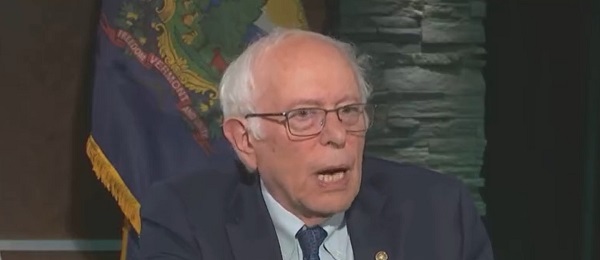
 Daily Caller2 days ago
Daily Caller2 days agoClimate Change Fanaticism Was The Big Election Loser


